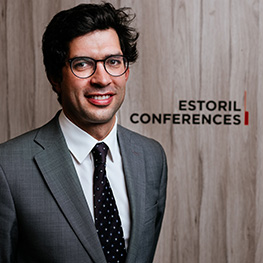The Patterns of Legislative Effectiveness, with the Advisory Board comprising esteemed scholars from the US and Europe, is led by a diverse team of young researchers from several European countries. The project epitomizes interdisciplinary collaboration and international engagement.
TEAM MEMBERS

Patrícia Calca, Principal Investigador (PI)
Patrícia Calca (PhD, ICS-Lisbon University) is a Political Scientist, Researcher and Guest Assistant Professor at ISCTE – Lisbon University Institute. She was a Post-Doctoral Fellow at ISCTE-LUI/University of Mannheim and the Technical University of Kaiserslautern. She was a Visiting Fellow at the Universities of Konstanz, Mannheim, Barcelona, and New York City. Her interdisciplinary research focuses on Political Institutions, Comparative Politics and Comparative Political Economy. She has published on legislative behaviour, decision-making, public policy analysis, accountability, and corruption.
Personal page: https://www.patriciacalca.com/
Google Scholar: https://scholar.google.com/citations?user=OvMm6-kAAAAJ&hl=en&oi=ao

Sebastian Koehler, Co-Principal Investigador (co-PI)
Sebastian Koehler is a Lecturer in Political Economy at King’s College London and Co-PI of the POLE Project. He serves as the been the Academic Convenor of the ECPR Methods School, and is a member of the SN Social Sciences editorial board. His research focuses on the impact of institutions on political strategies, especially in lobbying, legislative politics, and decision-making, combining formal theory with empirical analysis. His methodological interests are on network analysis and methods of causal inference.
Personal page: https://sebastiankoehler.eu/
Google Scholar: https://scholar.google.com/citations?user=dTjRMdQAAAAJ&hl=en&oi=sra

Shota Kakabadze, Post-Doctoral
Shota Kakabadze is a Post-Doctoral fellow in the POLE Project at the Centre for Research and Studies in Sociology (CIES), ISCTE – University Institute of Lisbon and a policy analyst at the Georgian Institute of Politics. He holds a Doctor of Philosophy in Political Science degree from the University of Tartu (Estonia). His main research interest includes discourses on national identity, foreign policy, political radicalisation, and democratisation.
Google Scholar: https://scholar.google.com/citations?user=LXbFlOcAAAAJ&hl=en&oi=ao

João Miguel de Carvalho
João Miguel de Carvalho is a PhD in Politics currently working as an Invited Principal Investigator in CIES-ISCTE. His research interests encompass the politics of international migration and the far-right. His research has been published in international journals such as: Journal of Common Market Studies, Party Politics, Government and Opposition, Parliamentary Affairs, Citizenship Studies, Comparative European Politics.
Personal page: https://www.joaomcarvalho.pt/
Google Scholar: https://scholar.google.com/citations?user=md7QlhgAAAAJ

Francisco Pereira Coutinho
Francisco Pereira Coutinho is an Associate Professor at NOVA School of Law in Lisbon, where he directs the Observatories of Portuguese Legislation and Data Protection Law, as well as the Moot Court Program. Specialized in Public International Law and European Constitutional Law, his research and teaching interests further encompass comparative constitutional law, data protection law, and media law. He is regularly invited in media and academic public debates on current international and constitutional law affairs, both in Portugal and abroad. His most recent book dives into the topics of secession and self-determination in Europe (Almedina, 2021).
Google Scholar: https://scholar.google.pt/citations?user=7jwnqdYAAAAJ&hl=en

Célia Felícia Belim Rodrigues
Célia Belim has a PhD in Communication Sciences (CC) and is an Assistant Professor in CC at the Institute of Social and Political Sciences, University of Lisbon (ISCSP, ULisboa), teaching since 2000. She is the director and scientific coordinator of the Portuguese Journal of Health Literacy. She has co-authored books published by IGI Global and Lexington Books, Roman & Littlefield, and has published in various scientific journals (e.g., Comunicar, KOME, Revista Mediterránea de Comunicación, Trípodos).
Google Scholar: https://scholar.google.com/citations?user=8Dg88PUAAAAJ&hl=pt-PT

Teresa Ruel
Teresa Ruel is a political scientist (PhD), and currently is a Guest Assistant Professor (ISCSP-ULisbon) in University of Lisbon. Her research focuses on political institutions, comparative, and regional/territorial politics (Azores, Madeira and Canary Islands) and comparative research designs.
ADVISORY BOARD

Simon Hix
Simon Hix (EUI, Stein Rokkan Chair in Comparative Politics). He was a Professor at the LSE. His research interests are on comparative political behaviour and institutions, as well as the study of political behaviour and institutions in the European Union. He uses quantitative and experimental methods in his research and is also interested in historical political science/political economy, particular the impact of constitutional and electoral system designs on the evolution of political behaviour. His work has been published in, among other places, American Political Science Review, American Journal of Political Science, British Journal of Political Science, Journal of Politics, European Journal of Political Research, and Comparative Political Studies. He has won prizes from the American Political Science Association, the US-UK Fulbright Commission, and the UK Economic and Social Research Council. Simon is a Fellow of the British Academy and a Fellow of the Royal Society of Arts.
Google Scholar: https://scholar.google.com/citations?user=_kFiXxEAAAAJ&hl=en&oi=ao
Personal page: https://simonhix.com/

Simon Hug
Simon Hug (PhD University of Michigan) taught at the University of Texas at Austin, the University of St. Gallen and the University of Zurich before being appointed to the University of Geneva. He teaches in the field of methods and international relations. His research focuses on political institutions and civil wars, the behavior of parliamentarians and international institutions.

Jonathan Slapin
Jonathan Slapin has been making research on legislative issues for a long time. He studied political science at Rutgers University and was a DAAD scholarship holder at the University of Konstanz. He received his PhD from the University of California, Los Angeles in 2007. His research focuses on the institutions of democratic politics, political parties and legislative politics. Since August 1, 2019, he has been Professor of Political Institutions and European Politics at the University of Zurich. Previously, he held positions at the University of Nevada, Las Vegas, Trinity College, Dublin, University of Houston, and University of Essex. At the University of Essex he was Director of the Essex Summer School in Social Science Data Analysis.
Google Scholar: https://scholar.google.com/citations?user=HtenZjwAAAAJ&hl=pt-PT&oi=ao

Alan Wiseman
Alan Wiseman is the Cornelius Vanderbilt Professor of Political Economy and Professor of Political Science and Law at Vanderbilt University, and he is the co-director of the Center for Effective Lawmaking (www.thelawmakers.org). He is one of the co-authors (along with Dr. Craig Volden) of the index that we will use. He has research and teaching interests in American political institutions and positive political economy, focusing on legislative politics, regulation and bureaucratic policymaking, and business-government relations. He is the author of Legislative Effectiveness in the United States Congress (2014, Cambridge University Press; coauthored with Craig Volden), and he has published research in journals including the American Political Science Review, the American Journal of Political Science, the Journal of Politics, Legislative Studies Quarterly, and Journal of Theoretical Politics. His current projects focus on the causes and consequences of legislative effectiveness in the United States Congress and other American state legislatures.
Google Scholar: https://scholar.google.com/citations?user=p8mZmYMAAAAJ&hl=pt-PT&oi=ao